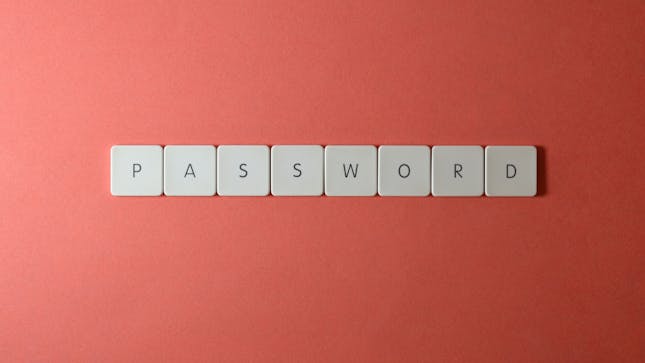As a mom running a small business, you’re wearing many hats—CEO, marketer, customer service representative, and more—all while balancing the demands of family life. In this whirlwind of responsibilities, cybersecurity might not seem like an immediate priority. However, small businesses are increasingly becoming targets for cybercriminals, and a single attack can disrupt operations, harm your reputation, and even threaten the financial stability of your company.
Cyber threats aren’t limited to large corporations; hackers often prefer small businesses, assuming they have weaker defenses. But here’s the good news: you don’t need a technical background to protect your business from these risks. By taking simple, practical steps and investing in the right tools and services, you can shield your company from cyberattacks without breaking the bank or losing precious time with your family.
In this guide, we’ll explore actionable strategies to help you safeguard your small business, from securing your devices to leveraging professional cybersecurity services. Whether you’re running an online shop, offering freelance services, or managing a small team, these tips will empower you to navigate the digital landscape with confidence and peace of mind.
1. Recognize the Risks
Cyber threats come in many forms, such as phishing scams, malware, and ransomware attacks. Hackers often target small businesses because they assume these companies lack robust security measures. The first step is to acknowledge the risk and understand the most common threats:
- Phishing Emails: Fraudulent messages designed to steal sensitive information.
- Malware: Malicious software that can compromise systems and steal data.
- Weak Passwords: Easy-to-guess passwords can be a doorway for attackers.
Awareness of these risks is the foundation of effective protection.
2. Use Strong Passwords and Multi-Factor Authentication (MFA)
Encourage everyone who accesses your business accounts to create strong, unique passwords. Use a mix of letters, numbers, and special characters to make them harder to guess. Tools like password managers can help you keep track of these securely.
Additionally, implement multi-factor authentication for an extra layer of security. This requires users to verify their identity using a second method, like a text message code, before accessing accounts.
3. Keep Software and Devices Updated
Outdated software can be an open door for cybercriminals. Regularly update your devices, operating systems, and any applications your business relies on. Enable automatic updates wherever possible to reduce the risk of vulnerabilities.
If your children occasionally use your business devices, ensure they’re also aware of the importance of updates and security practices.
4. Leverage Cybersecurity Services
Sometimes, protecting your business requires expertise beyond basic measures. Cybersecurity services can provide advanced tools and strategies tailored to your needs, helping you address threats proactively and strengthen your defenses.
One valuable service to consider is penetration testing. So, how does penetration testing work? Pen testing involves ethical hackers simulating cyberattacks to identify weaknesses in your systems, such as vulnerable software or outdated configurations. By addressing these vulnerabilities, you can prevent potential breaches before they happen.
Another essential service is third-party risk management. If your business works with vendors or partners, their cybersecurity practices can impact your own. A third-party risk management service evaluates these external relationships to ensure they don’t introduce unnecessary risks to your operations.
Investing in professional cybersecurity services is like hiring an expert guide—you gain peace of mind knowing your business is prepared to handle even the most sophisticated cyber threats.
5. Secure Your Wi-Fi Network
Your Wi-Fi network should always be password-protected with encryption enabled. Avoid using default passwords for routers, as these are easy for hackers to exploit. If you work from home, consider setting up a separate Wi-Fi network for business use to keep your work devices secure.
6. Back Up Your Data
Ransomware attacks can lock you out of your data until you pay a hefty fee. Avoid this nightmare by regularly backing up your business data. Use secure cloud storage solutions or external hard drives and ensure backups are automated and tested periodically.
7. Use Reliable Security Software
Invest in reputable antivirus and anti-malware software for all devices used in your business. These programs can detect and block threats before they cause harm. Free options exist, but a paid solution often offers better features and support for businesses.
8. Protect Customer Information
If your business collects customer data, such as email addresses, payment details, or personal information, it’s your responsibility to protect it. Store sensitive data securely using encrypted databases, and never share customer information unnecessarily.
9. Create a Cybersecurity Plan
A cybersecurity plan doesn’t need to be complicated. It can include:
- Steps to take if a cyberattack occurs.
- A list of emergency contacts, such as IT professionals or cybersecurity experts.
- Policies for employees and contractors regarding safe internet use and handling sensitive data.
Having a plan in place will save you time and stress if something goes wrong.
10. Consider Cyber Insurance
As a mompreneur, balancing family expenses and business costs can be tricky, but cyber insurance can be a worthwhile investment. It provides financial protection in case of a cyberattack, helping you recover quickly with minimal disruption.
Balancing Family and Cybersecurity
Cybersecurity may feel like an overwhelming topic, but protecting your small business doesn’t have to be complicated or time-consuming. By taking proactive steps like creating strong passwords, investing in cybersecurity services, and securing your network, you can minimize risks significantly. For additional peace of mind, investing in professional services like penetration testing and third-party risk management can give your business an extra layer of protection.
As a mom and entrepreneur, you already know how to multitask and adapt to challenges. Think of cybersecurity as another skill to add to your toolbox—one that ensures your hard work and dreams stay safe from cyber threats. With the right precautions in place, you can focus on what truly matters: growing your business, supporting your customers, and cherishing time with your family. By being prepared, you’re not just protecting your company—you’re building a resilient future for yourself and those you care about.





